What is the most suitable water for coffee? Does hand coffee use the same water as espresso?
Professional coffee knowledge exchange more coffee bean information please follow the coffee workshop (Wechat official account cafe_style)
In the morning, I looked at the leaking coffee slowly into the pot and counted the cup of coffee in front of me as my daily drink. after all, a cup of coffee is nearly 98% water. At the same time, this means that brewing water has a great impact on the flavor and quality of coffee, if you are eager to make incomparably delicious coffee, use the right water.
By communicating with Ivan Mora (now La Colectiva Caf é), a barista in Madrid, I hope we can have a better understanding of water and how Ivan uses his "homemade water" to make excellent coffee.
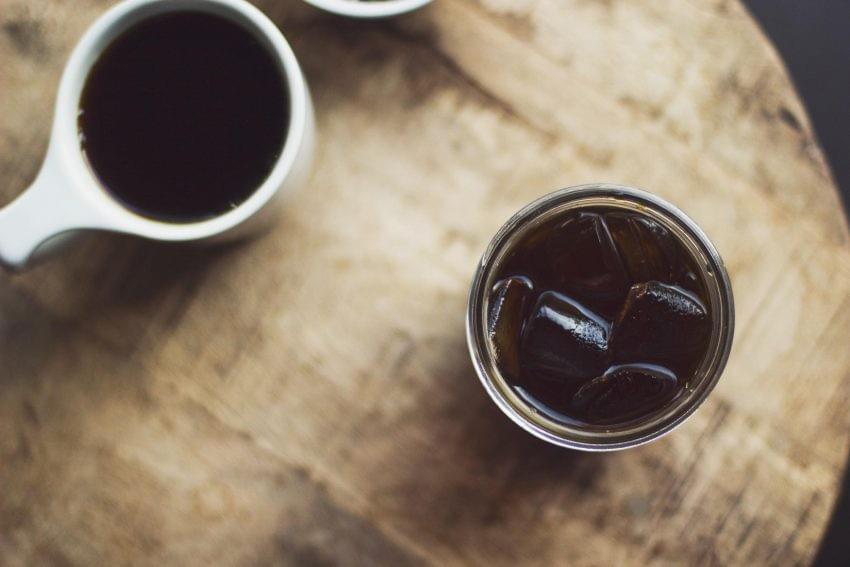
Why TDS and PPM- are different in Water
Water is usually not just water, but also contains "total dissolved solids" (TDS), that is, tiny minerals and organic matter that pass through the soil, water purification plants or water supply systems, and finally remain in the water, affecting the finished product of coffee.
However, they affect coffee in different ways and to different degrees, depending on the "PPM" of water and the substances composed. Common substances are magnesium, calcium and bicarbonate, all of which can greatly affect the flavor of coffee. For example, Maxwell Colonna-Dashwood and Christopher Hendon found that bicarbonate can regulate the sour taste of coffee, making the flavor tame, if the concentration is not right, coffee may taste insipid, unlike coffee.
"it's hard to taste the difference in TDS content when drinking plain boiled water," Ivan said. But he believes that when water is used to brew coffee, we can clearly tell the difference between water. A wide variety of minerals not only affect the taste of coffee, but also influence the way it is extracted.
Ivan stressed: "if the water quality is unstable, you will not be able to make coffee of the same quality. when the water quality is not satisfactory, you can only make mediocre coffee, only the most suitable water can make high-quality coffee." "but what is the most suitable water?
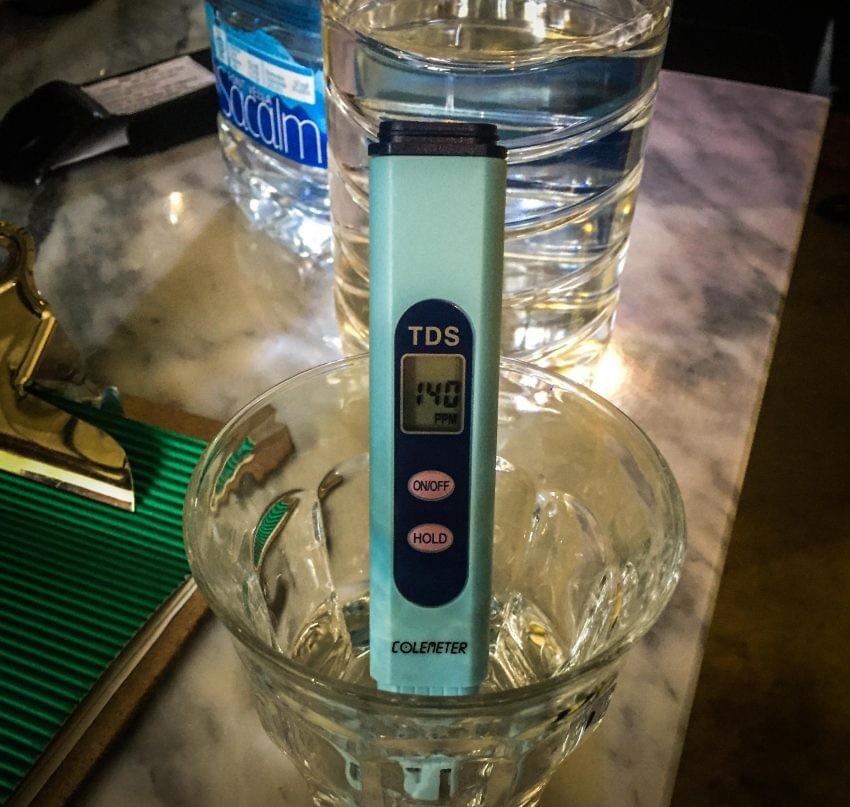
Detect different kinds of water
In search of extraordinary follicular coffee, Ivan tested many kinds of water and said he thought the most suitable water should have a mineral content of between 75 and 180 PPM. In fact, he mixed a variety of bottled water (with a total amount of dissolved solids ranging from high to low) to make the concentration of the water accurate to 137 PPM.
Recently, he held a lecture on coffee product evaluation, which aims to compare the taste and aroma of coffee using the following water sources: tap water, filtered water, and his "homemade water". The only variable for brewing three kinds of coffee is water, and the other conditions are the same.
How did it turn out? "Coffee made from tap water is really bad," he said. "I can't accurately describe its flavor, but it just tastes bad. The filtered water gives the coffee a strong sour taste. But when it comes to coffee brewed with "homemade water", Ivan says it tastes "mellow, pure sour and has no obvious drawbacks".
In the same way, he brewed the fourth kind of coffee with the usual bottled water, but that brand of water contained a lot of bicarbonate, so the coffee lost its aroma and affected its flavor.
In other words, water is important, but we may not always be able to use the most suitable water.
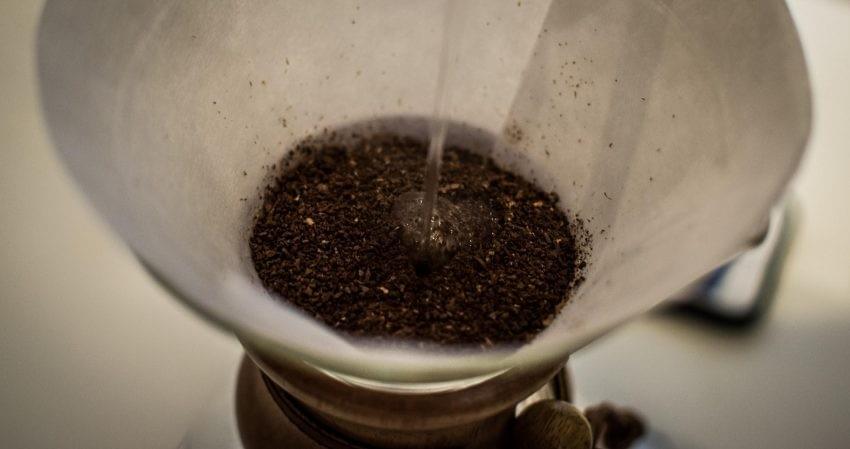
Does "the most suitable water" exist?
If you want to make coffee taste better with high-quality water, but you don't want to test as much water as Ivan, good news! The World Fine Coffee Association has published reference standards for water use:
The water used to extract coffee should be clean and odorless, with calcium carbonate between 50 and 175 PPM (water hardness), alkalinity between 40 and 75 PPM, and pH between 6 and 8.
But is it easy to meet all the conditions? The quality of tap water varies from region to region and varies from day to day. The quality of bottled water is relatively stable, but the composition of each brand of water is not necessarily the same.
Although Christopher Hendon still advocates the use of magnesium-rich water, he said: "We can't find water with perfect ingredients and always make every kind of coffee rich in flavor."
So you may not be able to use the "most suitable water" every time, but you can follow the above reference standards to improve the water quality.
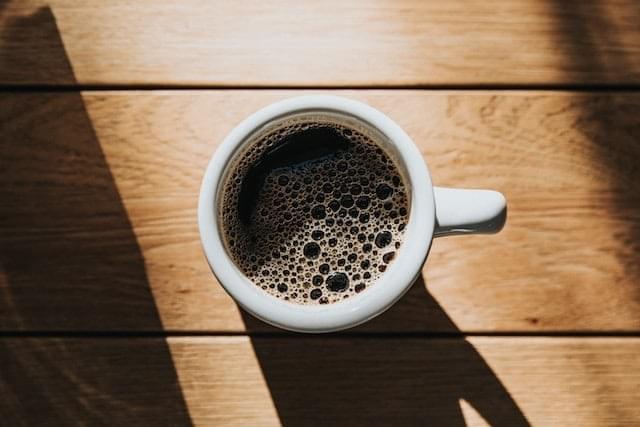
Is there really a difference between "brewed coffee water" and "Italian concentrated water"?
Is the brewing espresso the same as the water used to brew coffee? The data of coffee information platform "Barista Hustle" is not necessarily.
Filter coffee can clearly bring out all kinds of flavor and aroma of coffee beans, but the flavor of Italian concentrated flavor may be less obvious, especially latte or cappuccino, because milk can further affect the taste of coffee.
"each variable in the brewing process is complex and varies from barista to barista," Ivan told me. "homemade water is used to brew filtered coffee in order to magnify the subtle differences in coffee."
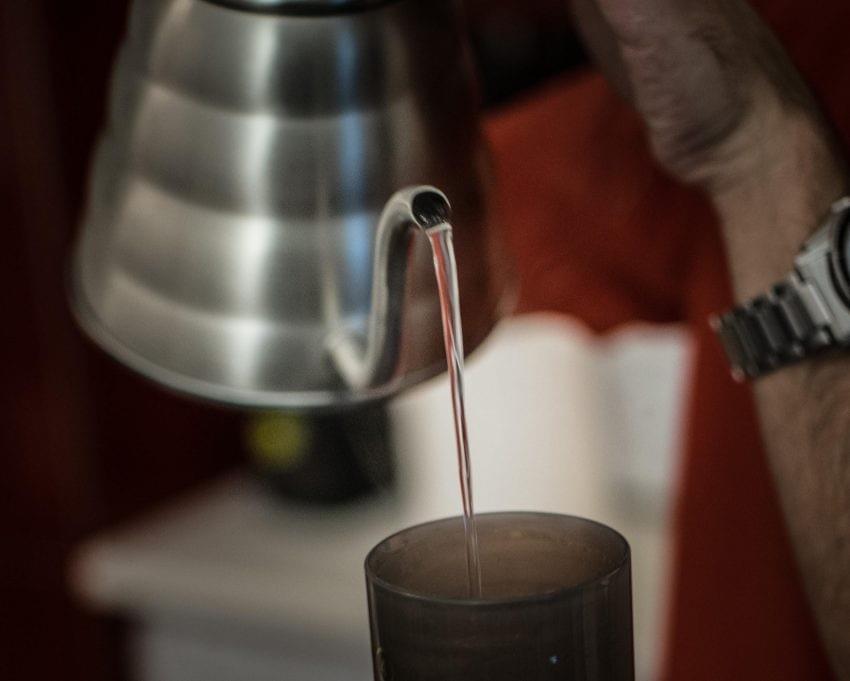
The secret of brewing coffee
Apart from PPS and bicarbonate, we have also talked about many other water quality standards, but what kind of water should be used in actual cooking?
Remember, the mineral composition of bottled water varies from brand to brand, while tap water varies from region to region.
Ivan advises: "pay attention to the water you drink and contact the bottler (water company) to find out the composition of the water." Only after you know your own cooking water can you know what can be improved. "
If you like coffee very much, but do not want to rely on "homemade water" to make good coffee, you can compare the ingredients on the mineral water package with the reference standards of the World Fine Coffee Association, brew the same kind of coffee with different brands of water, and then choose the water you like. You can also observe which coffee is suitable for brewing with different brands of water.
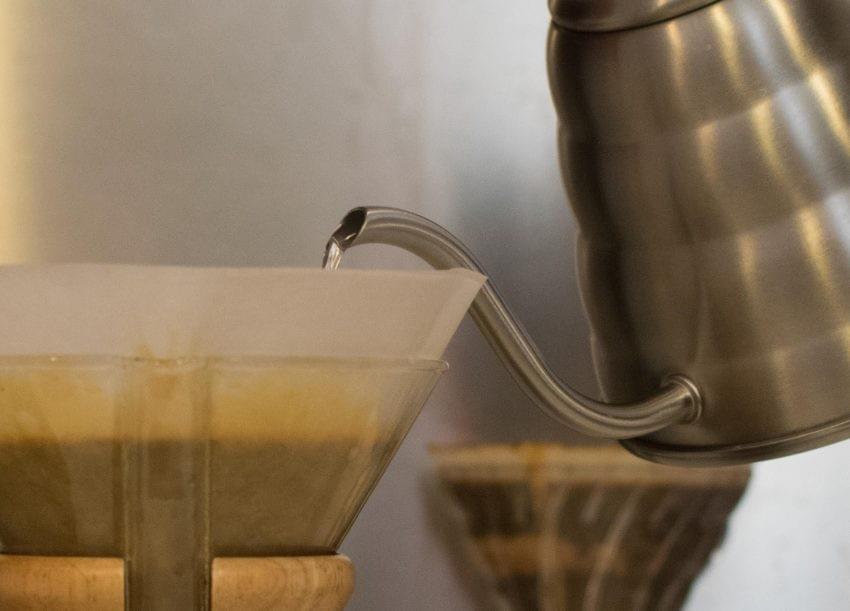
When making coffee, we will consider the origin of the coffee, the processing method, the depth of roasting, and record the grinding thickness and brewing time, so why not pay more attention to the water?
Water has a great impact on the flavor of coffee, as long as a little test and comparison, according to the test results can lead to the most diverse and delicate flavor and smell of coffee.
Written by Fernando Pocasangre
Translated from Perfect Daily Grind
END
Important Notice :
前街咖啡 FrontStreet Coffee has moved to new addredd:
FrontStreet Coffee Address: 315,Donghua East Road,GuangZhou
Tel:020 38364473
- Prev
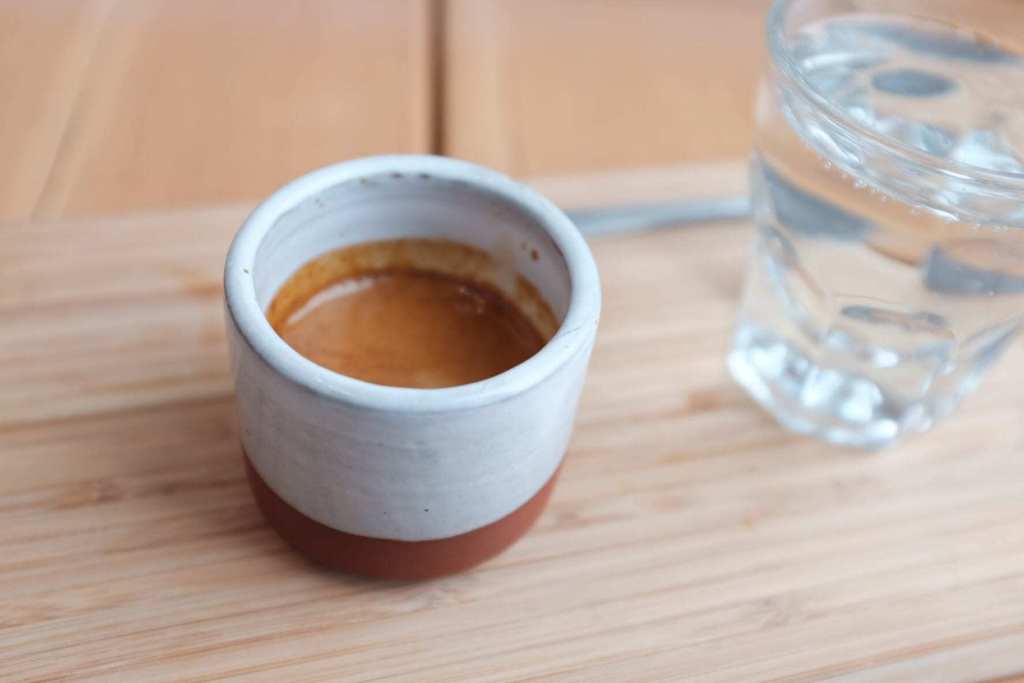
How to drink espresso? 5 Easy Steps to Taste Espresso_Is Espresso Good?
Professional coffee knowledge exchange More coffee bean information Please pay attention to coffee workshop (Weixin Official Accounts cafe_style) Espresso, which may be the most misunderstood and unpopular coffee brewing method in coffee shops. Most people would think that Espresso would only be drunk by a heavy coffee addict or a professional coffee connoisseur seeking excitement. But in 1901, Luigi
- Next
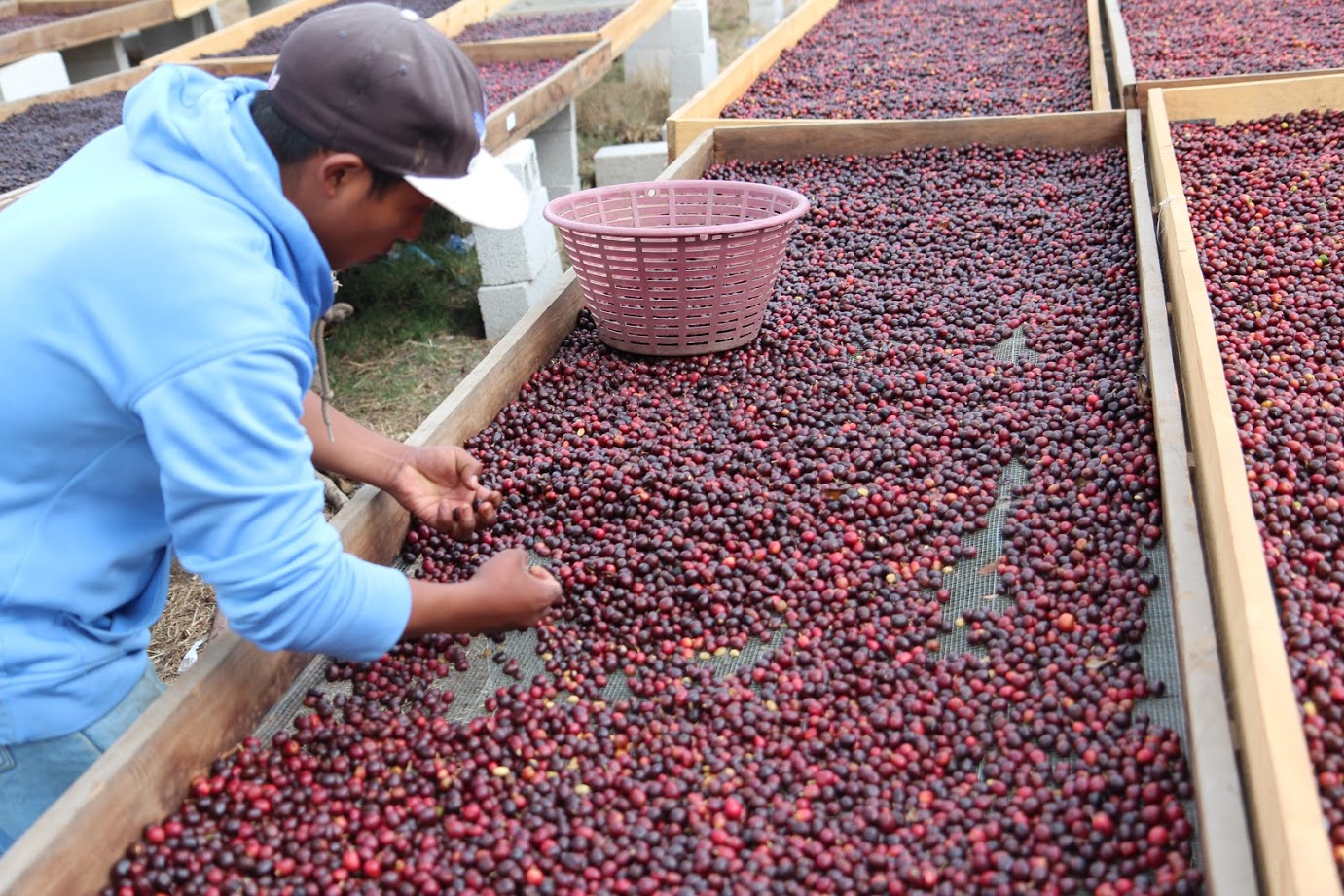
Know the defective beans before you drink coffee! Where did the defective beans go? What do defective beans look like?
Professional coffee knowledge exchange More coffee bean information Please pay attention to coffee workshop (Weixin Official Accounts cafe_style) A cup of coffee fragrance reminds us of the importance of proper preservation of raw materials in the food journey. The quality of coffee beans affects the flavor when drinking. Even improperly stored coffee beans may contain toxins. Long-term drinking may have an impact on health. The origin is defective beans.
Related
- Beginners will see the "Coffee pull flower" guide!
- What is the difference between ice blog purified milk and ordinary milk coffee?
- Why is the Philippines the largest producer of crops in Liberia?
- For coffee extraction, should the fine powder be retained?
- How does extracted espresso fill pressed powder? How much strength does it take to press the powder?
- How to make jasmine cold extract coffee? Is the jasmine + latte good?
- Will this little toy really make the coffee taste better? How does Lily Drip affect coffee extraction?
- Will the action of slapping the filter cup also affect coffee extraction?
- What's the difference between powder-to-water ratio and powder-to-liquid ratio?
- What is the Ethiopian local species? What does it have to do with Heirloom native species?

